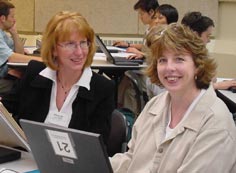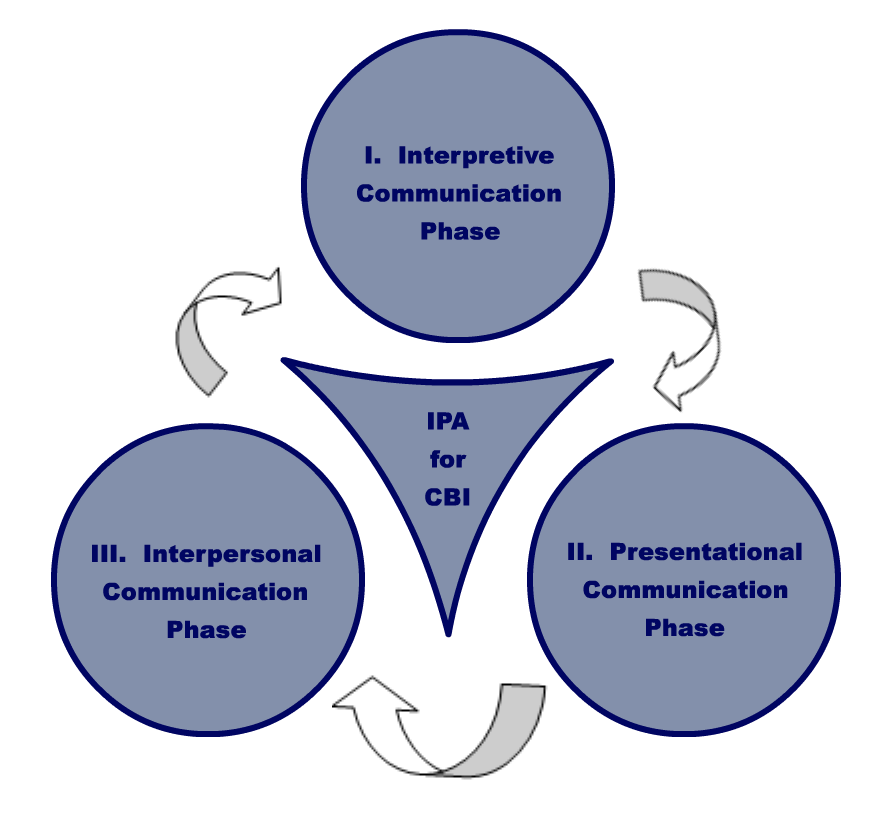 |
|
||||

|
Example 5: The European
Union by Pam Wesely Context: This lesson is intended for novice-low learners of French in either the fifth or sixth grades. My classes take place daily for forty minutes. The class sizes are small. This IPA will serve as a summative assessment of their knowledge of Europe. Our unit on Europe is centered around France and its neighboring countries in the European Union. The students learn the names of the countries and the nationalities of the people in those countries. They do a great deal of work with map directions, and they become familiar with major bodies of water and geographical markers in Europe. They have mastery of a number of different proper nouns related to Europe, but, at this point of their studies, my students have only learned about basic sentence structure, including simple declarative sentences beginning with "it is" or "there are." They are familiar with the basic question words like "who," "what," "how many," and "where." They recognize cognates and understand how to read maps. This Integrated Performance Assessment will be used to see how comfortable they are with both the content of our unit on Europe and with the use of these simple phrases Overview of the Task: I will explain the task in general in English. Their low level of proficiency dictates that any explanation in French will have to be heavily edited to their level, and part of the excitement of this task is its complexity. I do not want to emphasize their listening skills at this point, I simply want them to quickly understand the theme and content of this assessment unit. I will say:
In order to create a logical alignment for the tasks of this assessment, I have decided to start with the Interpretive Task, then proceed with the Presentational Task, and finish with the Interpersonal Task. My primary reason for this is to allow the information that the students share during the Presentational Task to be used directly to scaffold the Interpersonal Task. Learner-learner dialogues usually need considerable scaffolding (Underhill, 1987). In the case of such novice learners, this is doubly important. The whole IPA should take about six or seven class days, including two evenings of homework. The Interpretive Task of reading about the countries in the EU should take one period of forty minutes. The Presentational Task should take three class periods of forty minutes: two periods to prepare, two evenings of homework, and one period to present. The Interpersonal Task of surveying other students about their countries should take two periods of forty minutes: one period to model and practice, and one or two days to perform and provide individual feedback. This last part of the Interpersonal Task might stretch to two days depending on class size and number of times the students perform the task. These three tasks would best follow one after the other on several consecutive days in order to maintain an integrity of purpose and a seamless feedback loop for the students.
Cohen, A. (1994). Assessing language ability in the classroom (2nd ed.). Boston, MN: Heinle & Heinle. Descombe, F. (2004). L'Europe, c'est nous! Okapi, 759, 12-13. Glisan, E. W., Adair-Hauck, B., Koda, K., Sandrock, S. P., & Swender, E. (2003). ACTFL integrated performance assessment. Alexandria, Virginia: American Council on the Teaching of Foreign Languages. Gross, P. (2005). L'atlas géographique mondial. http://www.atlasgeo.ch/ Pearson Education. (2005). Information Please. http://www.infoplease.com/ National Geographic Company. (2005). MapMachine. http://plasma.nationalgeographic.com/mapmachine/ Underhill, N. (1987). Testing spoken language: A handbook of oral testing techniques. New York: Cambridge University Press.
Navigation: Follow the IPA process or go directly to the section that is of most interest to you by clicking on the appropriate category
|
||||
